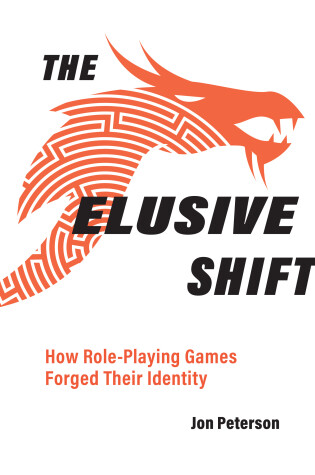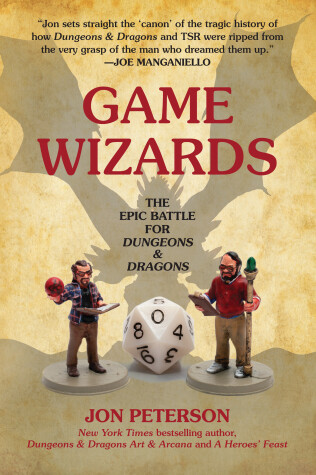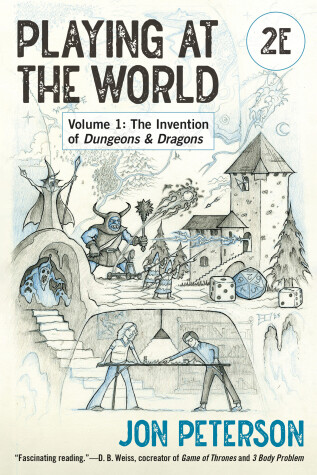Game Histories
3 total works
When Dungeons & Dragons made its debut in the mid-1970s, followed shortly thereafter by other, similar tabletop games, it sparked a renaissance in game design and critical thinking about games. D&D is now popularly considered to be the first role-playing game. But in the original rules, the term “role-playing” is nowhere to be found; D&D was marketed as a wargame. In The Elusive Shift, Jon Peterson describes how players and scholars in the D&D community began to apply the term to D&D and similar games—and by doing so, established a new genre of games.
Peterson examines key essays by D&D early adopters, rescuing from obscurity many first published in now-defunct fanzines. He traces the evolution of D&D theorizing, as writers attempted to frame problems, define terms, and engage with prior literature. He describes the two cultures of wargames and science fiction fandom that provided D&D's first players; examines the dialogue at the core of the game; explains how game design began to accommodate role-playing; and considers the purpose of the referee or gamesmaster. By 1977, game scholars and critics began to theorize more systematically, and Peterson explores their discussions of the transformative nature of role-playing games, their responsibility to a mass audience, and other topics. Peterson finds that the foundational concepts defined in the 1970s helped theorize role-playing, laying the foundation for the genre's shift into maturity in the 1980s.
“The battle over Dungeons & Dragons was the ultimate geek war.” —Wired
When Dungeons & Dragons was first released to a small hobby community, it hardly seemed destined for mainstream success—and yet this arcane tabletop role-playing game became an unlikely pop culture phenomenon. In Game Wizards, Jon Peterson chronicles the rise of Dungeons & Dragons from hobbyist pastime to mass market sensation, from the initial collaboration to the later feud of its creators, Gary Gygax and Dave Arneson. Inside you’ll learn about:
• Gygax and Arneson’s first meeting and their work toward the 1974 release
• The founding of TSR and its growth as a company
• Arneson’s acrimonious departure and subsequent challenges to TSR
• "Satanic Panic" accusations that plagued D&D—and boosted its popularity
• TSR’s reckless expansion and near-fatal corporate infighting
• And much more!
With Game Wizards, Peterson restores historical particulars long obscured by competing narratives spun by the one-time partners. That record amply demonstrates how the turbulent experience of creating something as momentous as Dungeons & Dragons can make people remember things a bit differently from the way they actually happened.


